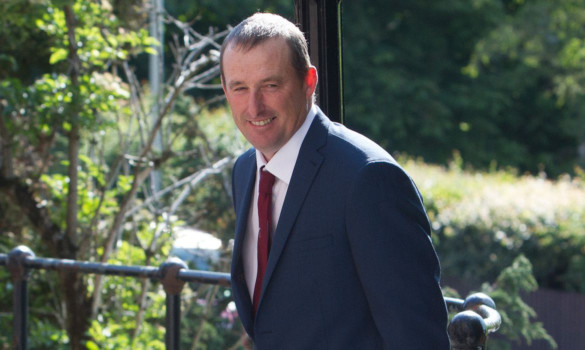The director of an Angus-based salmon company described 150-year-old fisheries legislation as “not fit for purpose” when he gave testimony at Forfar Sheriff Court.
Usan Salmon Fisheries has admitted several counts of failing to remove leaders, which help guide salmon into nets at sea, which the Salmon Fisheries Scotland Act of 1868 dictates have to be done before 6pm every Friday during the season.
The leaders can then be reinstated after 6am on Mondays.
The firm failed to remove some of its leaders in Angus over three consecutive weekends in August 2013 and again over four weekends in July and August 2014 at locations in Angus and Aberdeenshire.
At the proof of mitigation hearing, director George Pullar said he would not put the life of his crew at risk to carry out the operation at sea when the weather was bad.
He said he always made a risk assessment, which included studying the Met Office marine weather report, a wind forecast, environmental factors, as well as looking out at the sea before deciding if conditions were safe.
“Experience tells you what’s safe what to do, what not to do,” he told Sheriff Pino di Emidio.
He quoted from the Met Office report and described the conditions he faced during each of the times Usan Salmon Fisheries failed to remove nets.
Video footage taken by Mr Pullar was also shown to the court, in which he outlined why the conditions would have been dangerous for his crew.
He added that conditions could vary wildly from one location to another, which meant he was able to take in some nets but not others.
Mr Pullar said he was working with the Scottish Government, which was consulting on whether the legislation should change.
“The Government is well aware of the potential for a life-threatening situation (by crews going out in bad weather to remove or reinstate leaders),” he added.
“Everybody knows that the legislation requires modernisation. We are working with legislation made in the 1800s that isn’t compatible with 21st-Century health and safety legislation.”
He said one option being considered was a kill licence with a quota attached, which would stop the need for close times.
Under cross examination procurator fiscal Tom Dysart of the Crown Office’s wildlife and environment unit asked Mr Pullar if he kept the fish that had been caught over the weekend when he returned to the nets.
“I would keep the fish because I don’t know when they were caught,” Mr Pullar answered.
“There are times when I’ve not been able to go to see from a Thursday to the following Wednesday.
“Why shouldn’t I keep fish once the weekly close time has passed?”
Mr Dysart put to Mr Pullar that failing to remove leaders was a way for him to maximise revenue.
He replied: “No. I’m a professional fisherman. I need a sustainable fishery as much as anyone else.
“My brother and I both have family coming up into the business.”
The firm will be sentenced at the next calling of the case on July 16.
